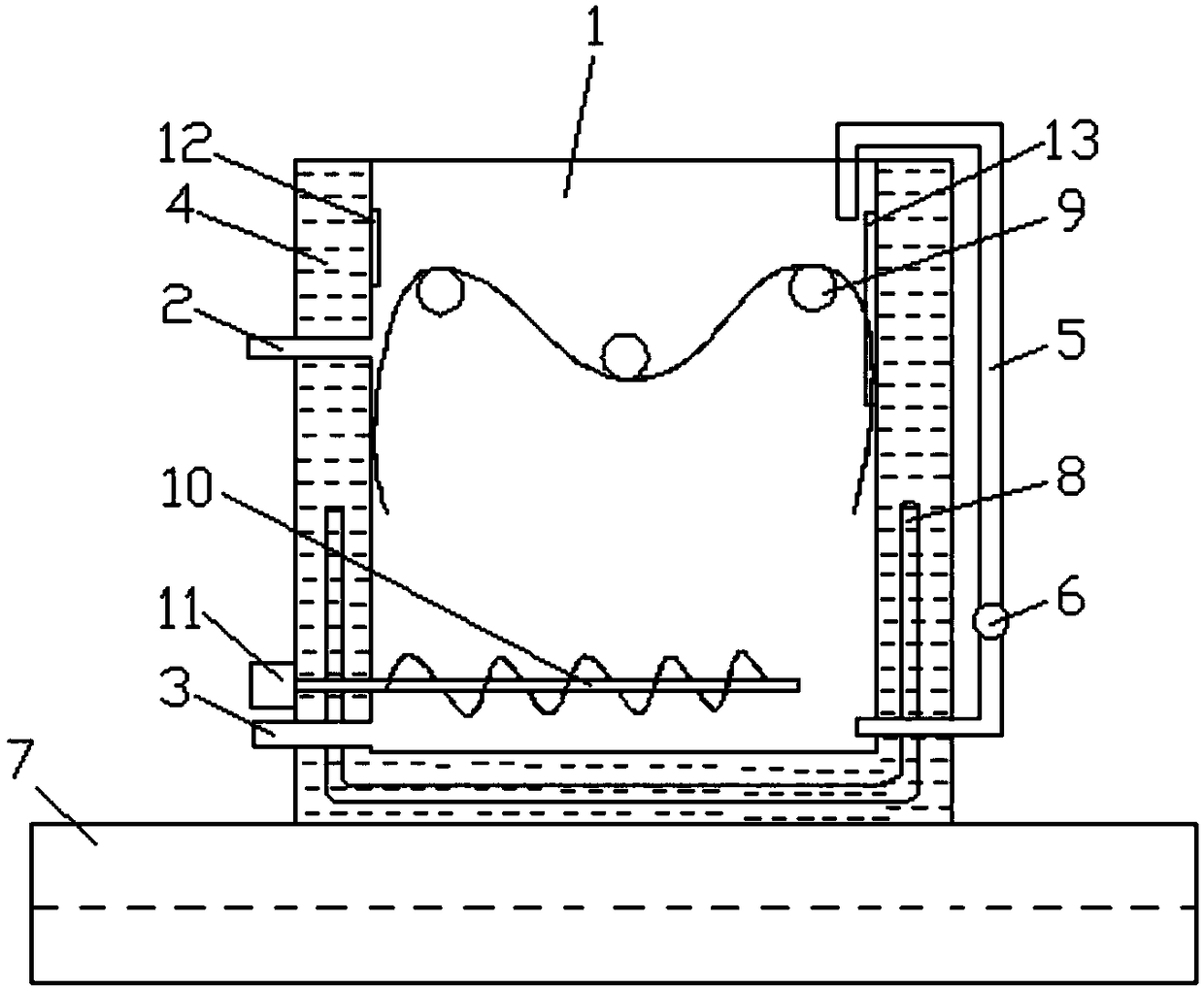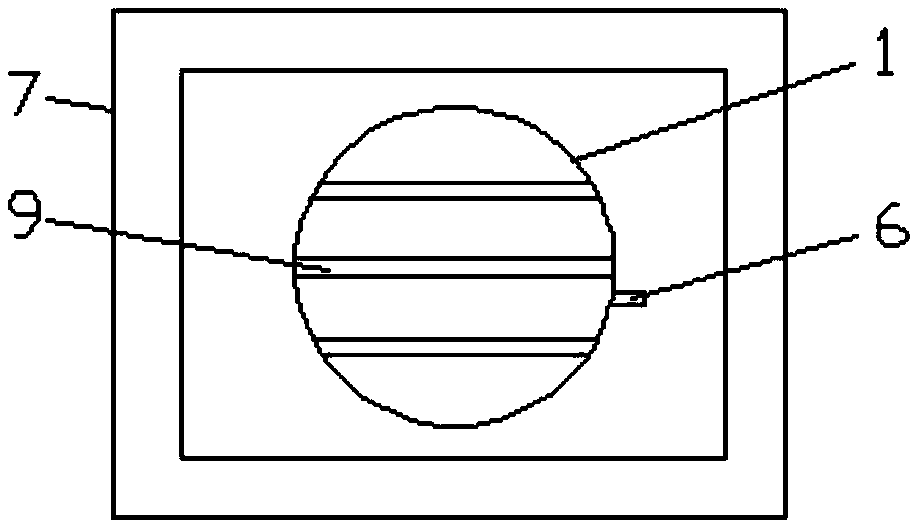Non-woven cloth dyeing device and process
A dyeing device and technology for non-woven fabrics, applied in the field of fabric dyeing, can solve the problems of uneven dyeing of non-woven fabrics, weak color and waste, etc., and achieve complete removal of dyeing liquid and impurities, simple dyeing process, and keep clean and hygienic. Effect
- Summary
- Abstract
- Description
- Claims
- Application Information
AI Technical Summary
Problems solved by technology
Method used
Image
Examples
Embodiment 1
[0052] The present embodiment provides a kind of non-woven fabric dyeing process, comprises the following steps:
[0053] S1: Pour the dyeing solution into the dyeing pot 1, dye the non-woven fabric for 60 minutes, and discharge the dyeing solution. The process of dyeing solution configuration is as follows:
[0054] (1) According to the need, add the dye and water into the batching device according to the bath ratio of 1:8, mix well, heat to 30°C, and keep warm for 10min;
[0055] (2) Continue to heat the mixed solution in the above step (1) to 60°C, add 1 / 2 part of sodium sulfate with a concentration of 15g / L at intervals of 5 minutes and 10 minutes respectively, and then add 2 / 5 parts at intervals of 10 minutes , 3 / 5 parts of soda ash with a concentration of 7g / L, kept for 40 minutes;
[0056] S2: Continuously feed clean water into the dyeing pot 1 to wash the non-woven fabric in step S1 for 5 minutes, remove the impurities distributed on the surface of the non-woven fabri...
Embodiment 2
[0061] The present embodiment provides a kind of non-woven fabric dyeing process, comprises the following steps:
[0062] S1: Pour the dyeing solution into the dyeing pot 1, dye the non-woven fabric for 65 minutes, and discharge the dyeing solution. The process of dyeing solution configuration is as follows:
[0063] (1) According to needs, add the dye and water into the batching device according to the bath ratio of 1:10, mix well, heat to 30°C, and keep warm for 10 minutes;
[0064] (2) Continue to heat the mixed solution in the above step (1) to 60°C, add 1 / 2 part of sodium sulfate with a concentration of 15g / L at intervals of 5 minutes and 10 minutes respectively, and then add 2 / 5 parts at intervals of 10 minutes , 3 / 5 parts of soda ash with a concentration of 7g / L, kept for 40 minutes;
[0065] S2: Continuously feed clean water into the dyeing pot 1 to wash the non-woven fabric in step S1 for 6 minutes, remove the impurities distributed on the surface of the non-woven fa...
Embodiment 3
[0070] The present embodiment provides a kind of non-woven fabric dyeing process, comprises the following steps:
[0071] S1: Pour the dyeing solution into the dyeing pot 1, dye the non-woven fabric for 70 minutes, and discharge the dyeing solution. The process of dyeing solution configuration is as follows:
[0072] (1) According to the need, add the dye and water into the batching device according to the bath ratio of 1:8~12, mix evenly, heat to 30°C, and keep warm for 10min;
[0073] (2) Continue to heat the mixed solution in the above step (1) to 60°C, add 1 / 2 part of sodium sulfate with a concentration of 15g / L at intervals of 5 minutes and 10 minutes respectively, and then add 2 / 5 parts at intervals of 10 minutes , 3 / 5 parts of soda ash with a concentration of 7g / L, kept for 40 minutes;
[0074] S2: Continuously feed clean water into the dyeing pot 1 to wash the non-woven fabric in step S1 for 7 minutes, remove the impurities distributed on the surface of the non-woven ...
PUM
| Property | Measurement | Unit |
|---|---|---|
| Concentration | aaaaa | aaaaa |
Abstract
Description
Claims
Application Information
 Login to View More
Login to View More - R&D
- Intellectual Property
- Life Sciences
- Materials
- Tech Scout
- Unparalleled Data Quality
- Higher Quality Content
- 60% Fewer Hallucinations
Browse by: Latest US Patents, China's latest patents, Technical Efficacy Thesaurus, Application Domain, Technology Topic, Popular Technical Reports.
© 2025 PatSnap. All rights reserved.Legal|Privacy policy|Modern Slavery Act Transparency Statement|Sitemap|About US| Contact US: help@patsnap.com



